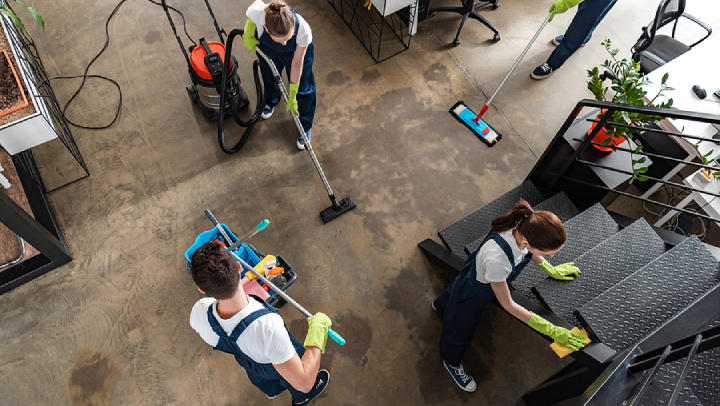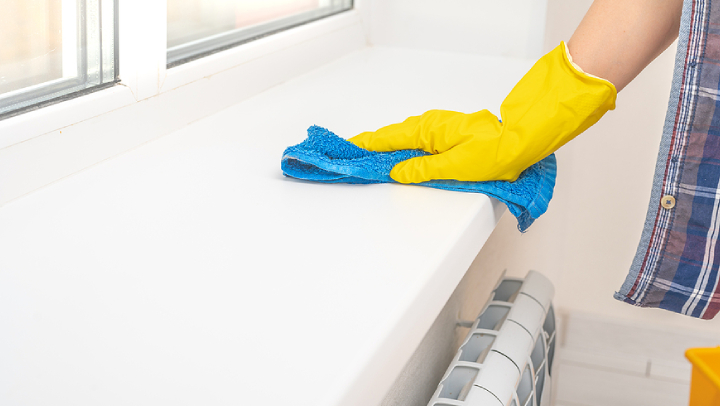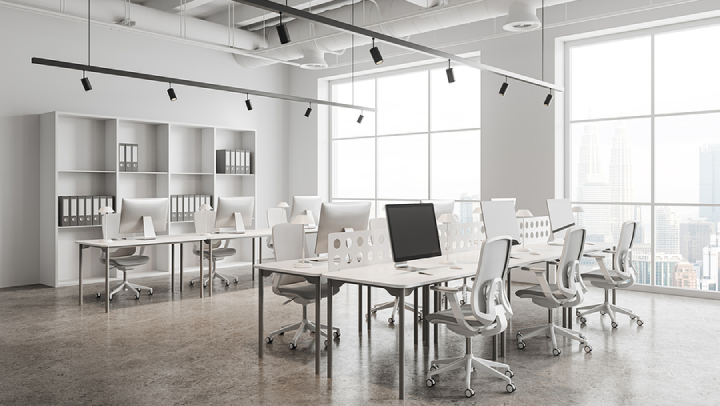Business owners and commercial property managers are well aware of the importance of professional cleaning services in maintaining their operations. Apart from finding a reputable cleaning company to partner with, another vital aspect that requires much consideration is whether to schedule these services during or after working hours.
For many years, the general commercial cleaning trend was to get the cleaning done after a business closed up shop for the day to avoid disruptions. However, in today’s post-pandemic world where cleaning standards and hygiene awareness have increased, more companies are cleaning and disinfecting their spaces during the day. This switch gives employees confidence that their employer is sparing no effort to safeguard their health.
Thus, choosing between day and night cleaning can be rather difficult. Understanding their pros and cons can thankfully make your decision process easier, which is why we’ve outlined the most important ones down below.
Day office cleaning: pros and cons
Pros of day office cleaning
1. Immediate feedback and issue resolution
With cleaning staff working during business hours, any issues or concerns related to cleanliness can be addressed promptly. This ensures that the office remains tidy throughout the day, providing a clean and professional environment for employees and visitors.
2. Energy efficiency
Conducting cleaning activities during the day eliminates the need for extra lighting, which is often required for nighttime cleaning crews. This can lead to energy savings and a reduction in utility costs.
3. No need for after-hours supervision
Since cleaning takes place during regular work hours, there’s no need for managers or security personnel to conduct after-hours supervision.
Cons of day office cleaning
1. Potential disruptions to office operations
Cleaning activities during office hours can disrupt daily operations. Noise from vacuuming, dusting, or garbage collection may distract employees and reduce productivity. In areas like conference rooms, cleaning schedules may interfere with important meetings.
2. Limited access to certain areas
Cleaners may find it challenging to thoroughly clean high-traffic areas like restrooms, break rooms, and open workspaces during peak office hours. Employees may inadvertently create new messes shortly after cleaning has been completed, necessitating multiple cleanings throughout the day.
3. Reduced cleaning efficiency
With employees present, cleaning staff may have to work around them, which can slow down their tasks and lead to incomplete cleaning in some areas. Additionally, employees may not appreciate interruptions, especially during busy periods.
Night office cleaning: pros and cons
Pros of night office cleaning
1. Zero disruptions
Since cleaning takes place after hours, there are little to no distractions for both the cleaners and the office staff. Cleaners can work more efficiently without having to navigate around employees, allowing for a more thorough cleaning job.
2. Comprehensive cleaning of high-traffic areas
With no one around, cleaners have the opportunity to deep-clean high-traffic areas such as restrooms and workstations and conduct time-consuming tasks like office carpet cleaning without interruption. This can lead to better sanitation and overall cleanliness.
3. Professional appearance in the morning
Offices that are cleaned at night are ready for a fresh start every morning. Employees can arrive to a pristine work environment, which can boost morale and create a positive first impression for clients or visitors.
4. Flexibility in cleaning time
Night cleaning allows for flexibility in scheduling, as cleaning staff are free to perform time-consuming tasks like floor waxing, carpet cleaning, or window washing without worrying about disturbing employees.
Cons of night office cleaning
1. Higher energy costs
Nighttime cleaning typically requires additional lighting, heating, or air conditioning to ensure a comfortable working environment for the cleaning crew. This can increase energy consumption and costs.
2. Limited communication
Since cleaners work outside regular office hours, any issues or special cleaning requests must be communicated ahead of time. If something is missed, it won’t be addressed until the next cleaning session, which could be a problem for offices with specific or time-sensitive needs.
3. Security concerns
Having cleaning staff in the office after hours may raise security concerns, as access to sensitive areas needs to be carefully managed. Security personnel may need to be present, adding to operational costs.
4. Less immediate feedback
Issues with the cleaning may not be noticed until the next workday, at which point it’s too late to address them quickly. This delay can lead to dissatisfaction if cleanliness expectations are not met in real time.
What about the hybrid option?
While it may seem like businesses can only choose between one or the other, the fact is that there’s also a hybrid approach that provides the ideal solution for those seeking a balance between day and night cleaning. This option involves scheduling lighter cleaning tasks during the day while reserving the more intensive ones for nighttime when employees are not present. In essence, it brings the best of both worlds without any of their disadvantages.
The hybrid approach leads to more consistent office cleanliness and improved communication because cleaners are present during business hours for smaller tasks, allowing business owners to provide feedback or make immediate requests. Any issues that require more attention can be addressed during the night shift, ensuring that no tasks are left unattended.
However, coordinating a hybrid cleaning schedule can be more complex, as it requires careful planning to balance both day and night shifts without overlap or service gaps. Furthermore, this approach may come with increased costs, as businesses would need to employ cleaning staff for both daytime and nighttime hours. Despite these challenges, the hybrid model offers flexibility and a balanced solution for ensuring a clean environment throughout the workday.
Conclusion
Deciding on an office cleaning schedule depends on the specific needs and priorities of a business. Ultimately, choosing the right cleaning schedule requires a careful evaluation of the office environment, staff preferences, and operational needs to create a cleaner, more productive workspace.
No matter which schedule you decide on, you can trust our team at Abba to deliver nothing less than exceptional workmanship. As an industry-leading clean commercial cleaning company in Singapore, we take pride in our efficient and comprehensive cleaning services that many of our clients have now come to rely on.



